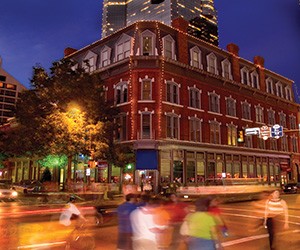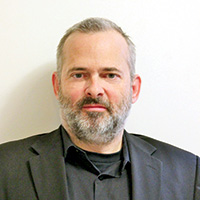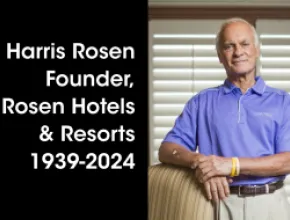Continuing to dominate national business and economic rankings, Texas has added more than a half-million jobs since 2008, the year we launched Meetings Focus Texas. Since 2010, the Lone Star State has led the nation in job gains in finance, healthcare, construction and energy. As Gov. Rick Perry stated, “Texas is a state where a dream can be put to work.”
What makes Texas so strong? For one thing, it’s purpose-geared for growth. As promoted by the Texas Economic Development Division in its ongoing “Texas Wide Open For Business” campaign, the state is pro-business all the way.
With 52 companies in the Fortune 500, Texas also rolls with the times. As world-renowned economist Ray Perryman said of his home state, “From cattle to cotton to oil to electronics, Texas has repeatedly reoriented its business complex to meet evolving needs and circumstances.”
The powerful Texas portfolio naturally attracts major sector-specific group business. Here are the economic profiles of some meetings magnets around the state.
Metro Muscle
The mighty Metroplex is the state’s top visitor destination and the leading business and financial center in the Southwest. Receiving more domestic nonstop flights into powerhouse DFW International Airport and Love Field than any other U.S. hub, the Metroplex is home to 18 Fortune 500 companies. Of these, eight are in Dallas, including AT&T and Southwest Airlines. Along with transportation, technology and financial services, healthcare is among the leading industries in the Big D.
“Medical groups appreciate being able to pull from our local rich talent and well-respected medical community for their meetings,” says Phillip Jones, CEO and president of the Dallas CVB. “For example, in November, the American Heart Association Scientific Sessions taking place in Dallas will incorporate local healthcare industry leaders into the event, including welcome messages. Many events use local Dallas CEOs as keynote speakers during their convention, which helps tap into industry leaders saving on travel costs.”
Offering a wealth of first-class group hotels such as Omni Dallas and Hyatt Regency Dallas, Dallas renamed its convention center in July after retired U.S. Sen. Kay Bailey Hutchison. Among America’s largest convention venues, it is the first in the nation to be named for a woman.
The corporate strength continues in Fort Worth, base for household names such as Pier 1 Imports, Radio Shack, Lockheed Martin, BNSF Railway Company and Fortune 500-ranked AMR (American Airlines), the region’s largest employer, with a workforce of 24,700 people. PageBreak
Just 10 minutes from downtown Fort Worth, Hurst Conference Center offers the ideal business-pleasure mix with over 50,000 square feet of event space, a premier executive boardroom and a relaxing outdoor area offering fireplaces and a water feature.
Headquarters to five Fortune 500 firms, including second-ranked Exxon Mobil, well-connected Irving is also a local base for almost 10 percent of all Fortune 500 companies and some 2,000 businesses overall. Offering more than 12,000 hotel rooms in 75-plus properties, Irving’s largest local industry is hospitality.
“Corporate travel drives and sustains our hospitality industry, with corporate transient and contract business representing approximately 65 percent of annual room demand,” says Maura Allen Gast, executive director of the Irving CVB. “With our wide range of corporations and breadth of industries naturally attracting group business, ensuring a healthy corporate base is critical to our long-term success. Our ‘hometown’ contingent works with us to bring those meetings home.”
Diversified drivers in Frisco include technology, healthcare, medical devices, financial services and tourism.
“Just 25 minutes from DFW International Airport, we benefit from a prime strategic location in the Metroplex,” says Marla Roe, executive director of the Frisco CVB. “Our weekday group and transient business comes primarily from the corporate campuses and satellite offices that surround us.”
Home of DFW Airport and headquarters for GameStop, the world’s largest video game retailer, Grapevine enjoys a thriving hospitality industry.
“Offering close proximity to the airport, supersized convention hotels and world-class attractions, Grapevine provides the perfect platform for combining convention business with leisure activities,” says Paul McCallum, executive director of the Grapevine CVB.
Home to a Union Pacific intermodal facility and a UPS distribution facility, Mesquite is a strong logistics and transportation hub.
“These are great examples for groups focused on logistics,” says Judy Skowron, director of the Mesquite CVB, describing a collaborative working relationship with the city government. “We work closely with the mayor and economic development office on tourism and group business initiatives.”
Widely regarded for its well-diversified economy and corporate headquarters, including Fortune 500-ranked J.C. Penney and Dr Pepper Snapple Group, Plano is also home to numerous manufacturers, small businesses and start-ups.
“This profile makes it possible for Plano to have a national and international audience,” says Mark Thompson, director of the Plano CVB. “In turn, this exposure allows us to show clients how we can help with their meeting needs and make it possible for them to stretch their budgets and manpower.”PageBreak
Currently leading the nation in job creation, Houston, America’s energy headquarters, boasts 22 Fortune 500 companies and the world’s largest concentration of healthcare organizations.
“We’ve developed strong relationships with the energy sector and the Texas Medical Center,” says Greg Ortale, president and CEO of the Greater Houston CVB. “Through these partnerships, we’ve created two conventions from the ground up—Medical World Americas and Total Energy USA—and embarked together on a major bid to bring the World Petroleum Congress to Houston. We are most successful when aligning our efforts with these verticals, providing concepts they can get behind and emotionally invest in. Initiatives like these conferences are symbiotic—everyone wins.”
San Antonio, the nation’s seventh-largest city, has several industries impacting its meetings landscape.
“Key sectors such as healthcare/bioscience and IT/cybersecurity are rooted in the city’s substantial military framework, which has been very impactful in attracting meetings within these industries,” says Casandra Matej, executive director of the San Antonio CVB.
Employing one out of eight San Antonians, tourism also directly strengthens the city’s meetings industry. With attractions like SeaWorld San Antonio and Six Flags Fiesta Texas and the Henry B. Gonzalez Convention Center in the heart of historic downtown along the River Walk, the city offers almost 45,000 hotel rooms. For groups, standout properties include Grand Hyatt San Antonio, Hilton San Antonio, JW Marriott San Antonio, Omni La Mansion Del Rio and just outside the city, Hyatt Regency Hill Country.
“With strong sector support for meetings, planners can tap into specialized facilities and networking opportunities,” Matej says. “Oftentimes, local experts are involved on boards related to these meetings or participate as exhibitors and attendees.”
Government features prominently in Austin, the state capital, along with technology. Top employers include Apple, Samsung and Cisco, along with Dell, headquartered in nearby Round Rock. The Austin Convention Center, meanwhile, is one of the most technologically advanced facilities in the nation. Interactive technology, along with film and music, figures prominently in South by Southwest (SXSW), the annual industry gathering that has come to define Austin as an international destination for major events.
Gulf of
Opportunities
Along with tourism, Galveston’s main sectors are medicine and maritime.
“The University of Texas Medical Branch, a world-class teaching and research university, is our top economic driver,” says Meg Winchester, director of the Galveston Island CVB. “This provides backyard marketing opportunities for interacting with top medical professionals and accessing speakers, facilities and other resources.” The Port of Galveston is another major hub.
“Home to the nation’s fourth-busiest cruise ship terminal, we offer groups excellent pre- and post-cruise options and other offshore activities,” Winchester says.
Also leveraging its coastal location is energy hub Port Arthur.
“Expansion of several key refineries and energy-related facilities continue to fuel hotel and meeting space growth,” says Tammy Kotzur, director of the Port Arthur CVB.
Along with petrochemicals, Beaumont’s leading sectors are healthcare, education, hospitality and local government.
“While our hotels derive a large portion of their room nights from the area’s petrochemical industry, we have capitalized on flourishing relationships with Lamar University and agencies within the county court system,” says Dean Conwell, executive director of the Beaumont CVB. “Because of our sales team’s efforts, numerous conferences and events have been booked from these two valuable entities.”PageBreak
Southern Exposures
In South Texas, leading economic centers McAllen and Laredo leverage their proximity to the Mexican border.
Along with tourism and agriculture, McAllen’s primary industry is maquiladoras, or businesses with operations in the U.S. and production in Mexico.
“With more than 500 plants producing everything from toys to missile parts, the maquiladoras give McAllen a great boost in business tourism,” says Nancy Millar, vice president and director of the McAllen CVB. “Also the nation’s leading shopping destination for Mexico, we attract a constant flow of business travelers and international events, with winter meetings and conferences especially popular because of our mild weather.”
Proximity to Mexico is also a plus for transportation and logistics powerhouse Laredo. As the nation’s largest inland port, this global hub handled $239 billion in trade with 60 countries in 2012. Another major play is the Eagle Ford Shale, an oil and gas field that may be the largest single economic development in Texas history.
“Our port status, combined with the presence of federal, state and local law enforcement, has also attracted significant accounts such as the National Narcotic Detector Dog Association,” says Blasita Lopez, director of the Laredo CVB.
Hosting the Logistic Cities World Forum in May 2013 at Texas A&M International University, the city also hosts major gatherings at the 10,000-seat multipurpose Laredo Energy Arena.
Center Stages
The Lone Star State’s vast central region is rich with natural resources and economic opportunity.
Home to more than 2.6 million residents, El Paso is among the world’s largest bi-national metro areas. Major economic drivers include military/defense, international trade, education and advanced manufacturing—with significant clusters in automotive, high-tech consumer electronics and medical devices.
Quadrupled in personnel since 2005, Fort Bliss has experienced the largest net gains of any military installation in the country, while a rebound in maquiladora production and diversification contributed to more than $82 billion of international trade passing through El Paso’s ports last year. The city is also home to the only medical school located on the U.S./Mexico border.
Together, Midland and Odessa represent the administrative and management center for the 100-mile radius Permian Basin energy industry. Featuring more than 2,300 oil, gas and support companies, the area is also diversifying its economic base to include healthcare, ranching, agriculture and retirement.
“Our region has garnered much national attention for its role in America’s energy commerce,” says Gaylia Olivas, vice president of the Midland CVB. “With a high volume of corporate travel we have beautiful hotels and accommodating meeting space that makes Midland a prime group destination.”
Midland is also a forward-thinking community, with Midland International Airport currently under development as a spaceport.
Along with tourism, wind energy and oil exploration, medicine and higher education also figure prominently in the economy of regional stronghold Abilene, home to three universities and satellite campuses for Texas Tech’s nursing and pharmacy schools. Dyess Airforce Base is another major local employer.
“Having evolved from a cattle-shipping prairie town to a metropolis on the plains, Abilene is the defining city of West Texas, where the frontier spirit still applies to discovery and creativity,” says Nanci Liles, executive director of the Abilene CVB.







